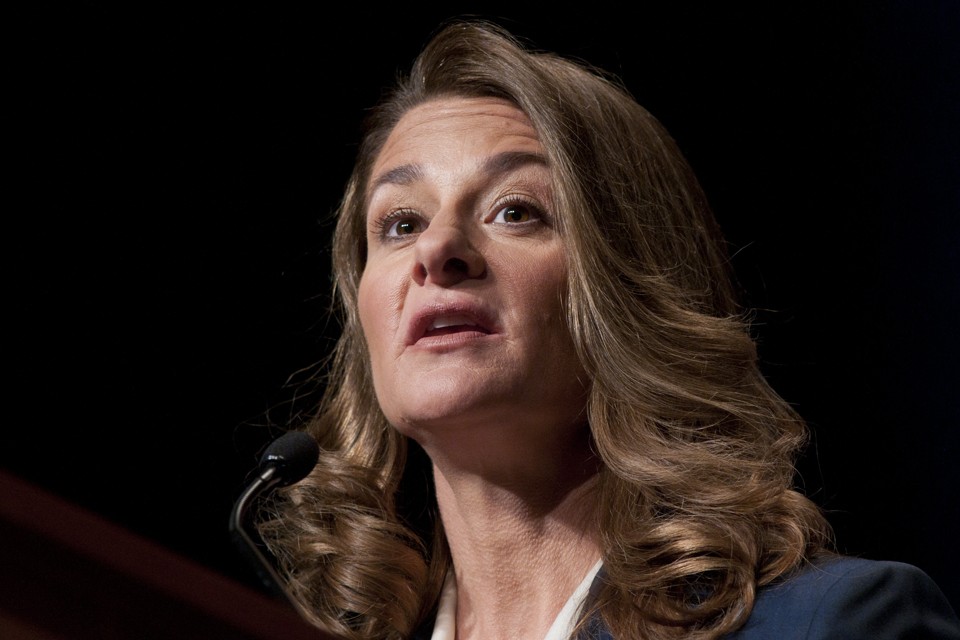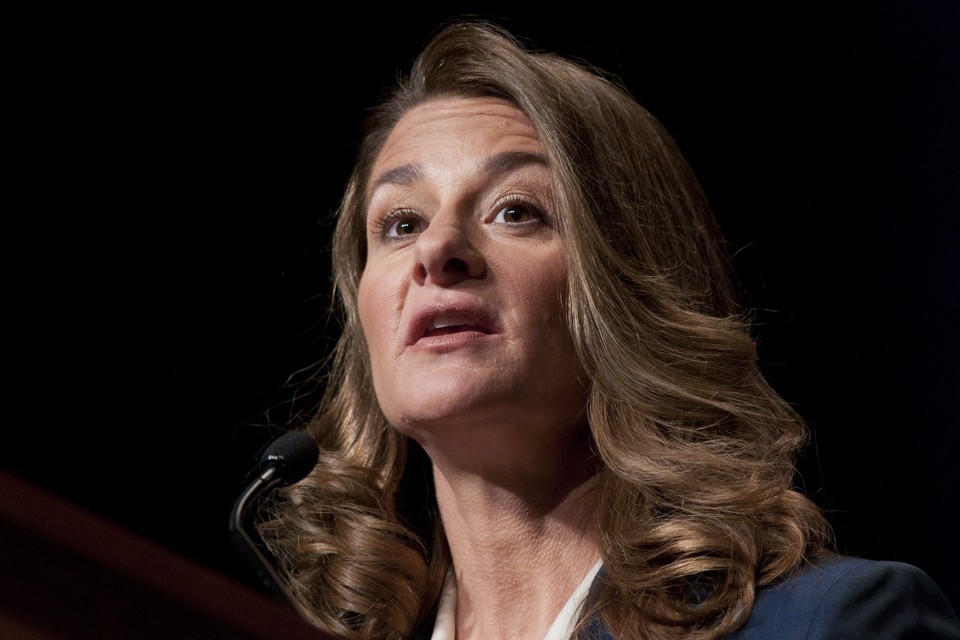
Long before Melinda Gates was famous for her philanthropic work, she was yet another woman trying to make it in the male-dominated tech world.
Gates started working at Microsoft in 1987, when it was still a small, scrappy company. But even for a woman with a degree in computer science and technical skills in her blood (Gates’ father was an engineer) she still had trouble figuring out precisely how she fit into the male-dominated industry.
Thirty years later, many women are still asking themselves that question. Women make up an even smaller share of computer-science majors than they did when she graduated, having fallen to 18 percent from 37 percent in 1984.
With the formation of her own foundation, Pivotal Ventures, Gates is joining the bevy of voices in tech who are calling for change. I spoke with her about her experience at Microsoft, how she is approaching the issue if gender diversity in the industry, and why creating more inclusive companies is critical for the future.
The interview below has been lightly edited for clarity.
Gillian White: Our latest cover story delves into problems with gender diversity in the tech industry by asking, why is Silicon Valley so awful to women? How would you would answer that?
Melinda Gates: It hasn’t been welcoming to women now for more than a decade. So it’s something that’s actually been going on for a long time and I don’t think you see it being worked on in a systemic way and I think it needs to be worked on in a systemic way. If that doesn’t get reversed, you’re not going to have young women wanting to go into the field.
White: So why choose this moment to weigh in?
Gates: I’ve always been concerned about this. I think about where we’re going to go with computer science, where we’re going to go with technology. I see machine learning and what it’s doing in different sectors and I start to project forward and I say: Oh my gosh, if today, only 18 percent of computer science graduates are women and we’re not on a significant rise, think about what that’s going to mean for the future. It’s not good for now for the products we’re designing, it’s a disaster in terms of artificial intelligence. We have to be out doing everything we can to get more women into computer science.
White: What’s at risk if more women don’t get incorporated into computer science and tech?
Gates: I think we’ll have so much hidden bias coded into the system that we won’t even realize all the places that we have it. If you don’t have a diverse work force programming artificial intelligence and thinking about the data sets to feed in, and how to look at a particular program, you’re going to have so much bias in the system you’re going to have a hard time rolling it back later or taking it out.
White: As a computer-science major in the 1980s, how did you see the field?
Gates: When I was studying computer science at Duke University, I saw freshman year there were quite a few women in computer science, maybe a third. But by my sophomore year, there were a handful of us. And then there was a handful that persisted. And I didn’t actually mind that, because I was programming with male teams and I was used to that and I had good friends in computer science. When I was in college we thought, just like medicine and law, we’re on the way up—there’ll be more and more of us. But to come out of Microsoft 10 years later and look at the statistics and realize that even then they were headed down—it was just baffling to me.
White: Did you have an experiences at Microsoft that made you understand why women would leave, or that made you want to leave?
Gates: I would say this about working at Microsoft: First of all, I loved it, I loved the products we were working on, I loved the fast paced nature of it. I didn’t always love the caustic nature of it. After about two years there I did think about leaving. I thought, I’m just not sure that it feels like the kind of environment day in and day out that I want. Then I decided that I’ll just be myself for a while and see if that works. And I started to learn that being myself could work. By then, I was a manager and I ended up inadvertently attracting huge teams around me who wanted to act in the same way. And people would even say to me, “How in the world did you recruit that amazing programmer to one of your teams?” and I would say, well I think they just want to work in this type of environment.
White: Prior to that choice, to try being yourself, how were you altering your behavior to fit in?
Gates: I felt like I had to be argumentative all the time. I can go toe-to-toe, I can win arguments. I know how to do that, I know how to play that game, but I didn’t want to live there all the time. And so I learned that there were other ways where we could put the intellectual rigor up front, but we didn’t have to constantly have an argument.
White: You mentioned being in undergrad and feeling like gender equity would increase in the world of computer science. Why do you think that, in large part, hasn’t happened?
Gates: I don’t think anyone knows for sure. We know there are these gaps, what I call lost points, that start all the way at the kindergarten level. Then you see it again at elementary, you see it in middle school, high school, college, and then going into industry. And when you have any kind of pipeline that’s leaky in so many places, you can’t plug just one piece of it. So I think we have to do certain things at each of those.
Part of it is that there’s a bias in schools. I see it even with my kids in school. People might assume that the boys might be good at programming and the girls might not. You have to work on it at each level, middle school, high school. The entry point of computer science at college is a big loss point and I don’t think it’s the silver bullet, but there are points of light where you see certain of those computer science classes doing a really good job. At Stanford, 90 percent of undergraduates take that class [computer science] now, because they’ve made changes. Or Harvey Mudd, they’ve made changes. I think in the industry, if women come out of computer science and they’re successful, but they don’t feel welcomed, that’s another place you have a huge loss point. Or they’ll go in but they don’t stay in very long.
White: And there’s the funding piece, too right? Where women struggle to get their companies funded at the same level as men.
Gates: Why is it that only 3 percent of startups that get venture-backed…

